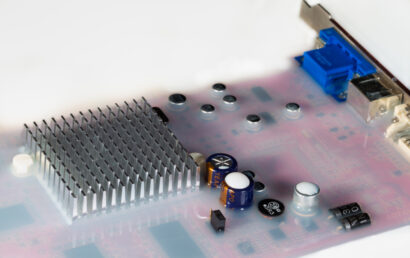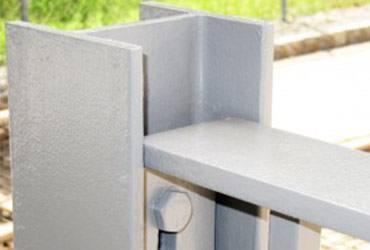A Comparison Between Water-Based and Solvent-Based Coatings
Often, depending on what resin or binder they’re made from, coatings get their name accordingly. Examples of this are urethanes, alkyds, and epoxies. There’s a lot more, however, to the makeup of a coating than that. Additionally, color is determined by pigments, performance properties are determined (in part) by additives, and all are dissolved into a more easily applied liquid form.
The agent used to help liquefy coatings can be either a chemical solvent or water. That’s where the terms water-based and solvent-based coatings come into play. Numerous circumstances determine which product is perfect for a specific application. Neither is better than the other per se, but in assorted situations, they each perform differently.
A good thermal spray coating company that offers both is one sign of a professional with an up-to-date, well-balanced, all-inclusive arsenal. Now let’s take a look at these coatings and how they differ.
Solvent-Based Coatings
The liquefying agents in solvent-based paints react in a specific manner: when oxygen and chemicals react, the liquefying agents evaporate. Drying times can be reduced by the reaction being sped up because the air surrounding the process is moving.
Compared to water-based coatings, one major advantage is possessed here. During the curing phase, they are less susceptible to humidity, temperature, and other environmental conditions. In a water-based coating, humidity hinders water evaporation. That’s why, in some climates, water-based coatings are impractical. In a coating project, during the surface prep stage, challenges are also presented by water-based coatings.
Let’s face it, in the corrosion process, a key component is water. So, using it in the process of protective coating applications (meant to discourage or prevent corrosion) seems counterproductive. If a water-based process is used for surface preparation, all of the water must be completely and totally gone before the process can proceed. With solvent-based coatings, this is not a worry.
Water-Based Coatings
Some 80% of current household paints are water-based. It’s no wonder, however, because water-based products have attractive qualities in the right setting. There are fewer odors, for one. Fortunately, settings can include heavy duty protective needs, interior applications that are less demanding, and numerous situations in between.
Health hazards and discomfort can be a result when solvents are used. Particularly when working in poorly ventilated spaces, solvent evaporation is one of the less desirable aspects of solvent-based products. Water-based coatings are used, therefore, in numerous projects such as those involving railroad tank cars, fuel storage tanks, and more. Because a confined space is present, the reduction of a buildup of concentrated flammable materials is essential.
Water-based coatings are also used to satisfy environmental compliance. VOCs, or volatile organic compounds, are a result of solvent evaporation in many cases. These VOCs are regulated by local, state, and national governments. Because of tightened restrictions, efforts to limit VOC emissions have become concentrated on an increasing level.
Solvents in Water-Based Coatings?
All of the above is not to say that zero solvents are contained in all water-based coatings. But, they assuredly contain considerably fewer solvents than actual solvent-based coatings or no solvents at all.
The use of water-based solvents can help companies save money for two reasons:
- When companies exceed VOC quotas, they pay a fine. Using water-based solvents greatly reduces this possibility.
- Many companies depend on advisors to help them stay within environmental compliances. These advisors cost money. A company will spend less on this type of advising by using water-based products that present no VOC concerns.
A&A Coatings has both water-based and solvent-based coatings available. Our thermal spray process can benefit numerous industries in any number of applications. To find out how your company can benefit from thermal spray protective coatings, contact one of our knowledgeable representatives today.



